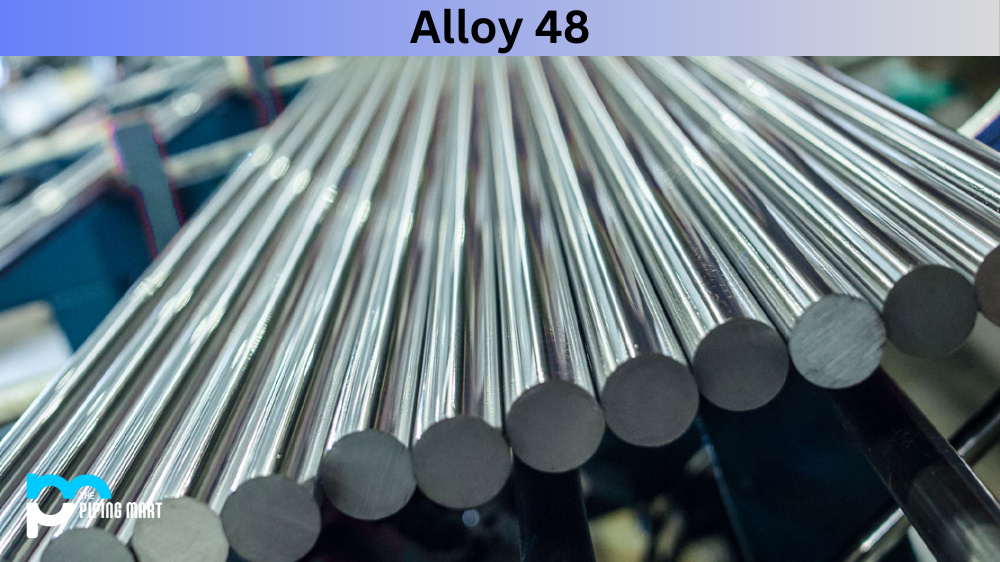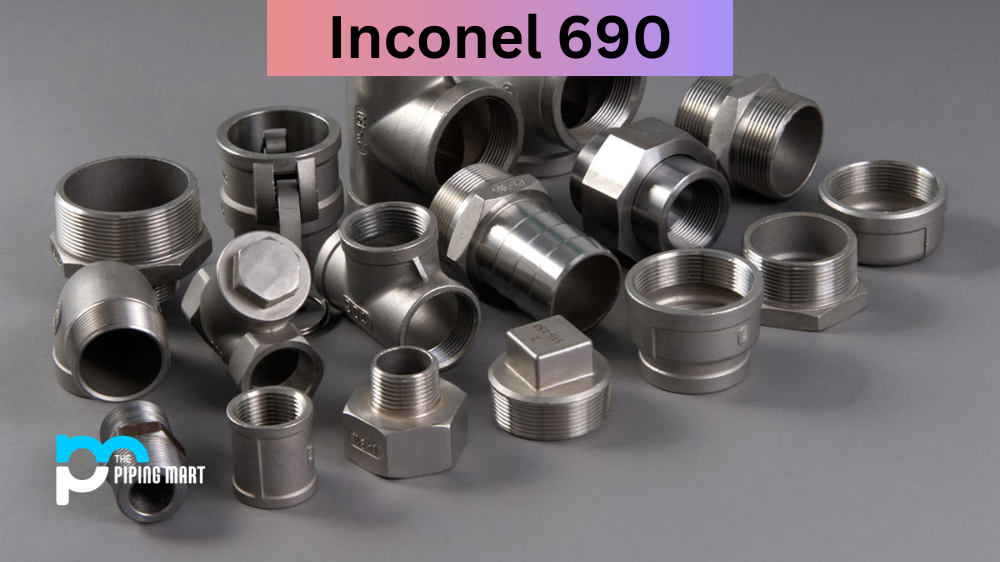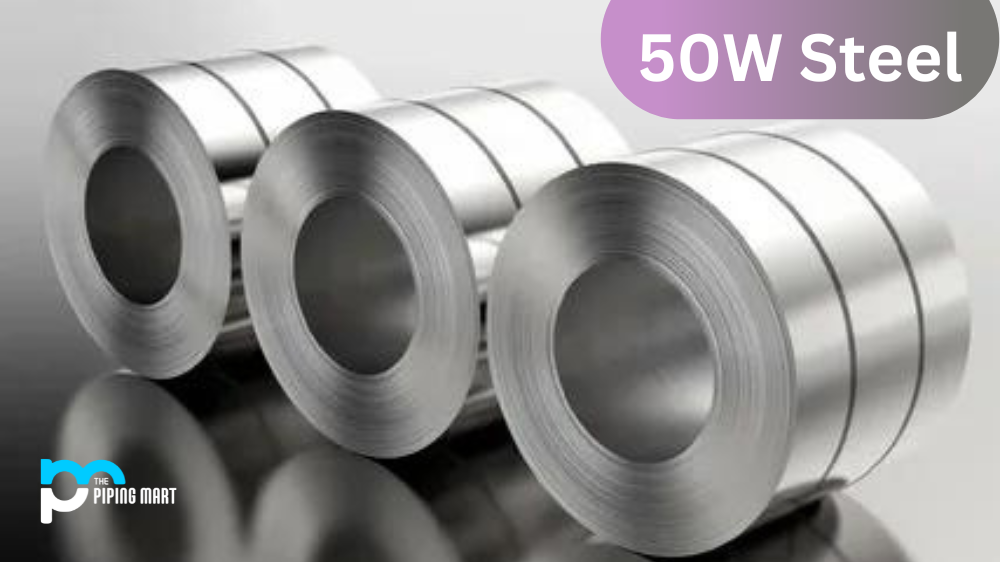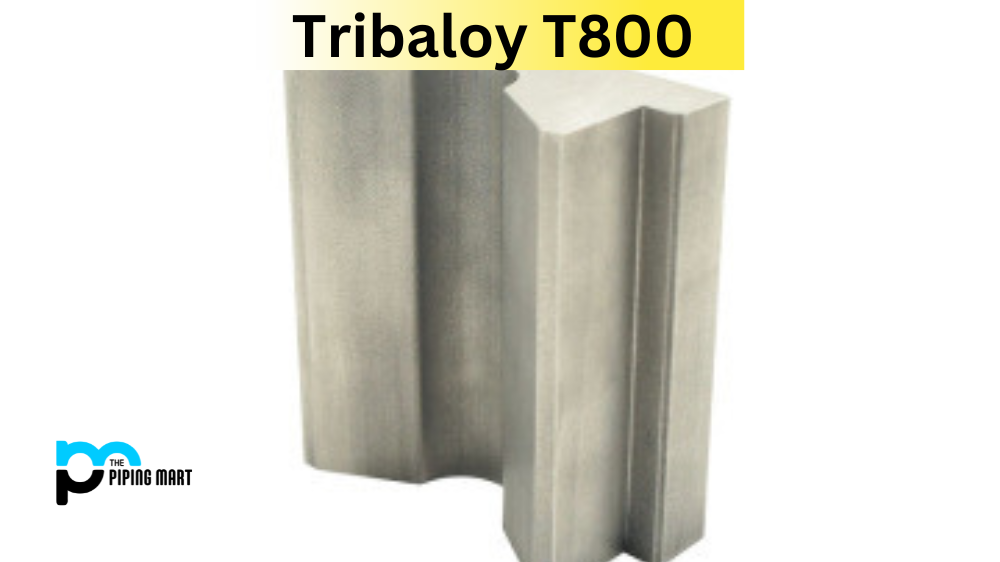In the world of alloys, those with exceptional qualities are highly valued. One of these alloys is alloy 48, a high nickel-iron material with superior mechanical and physical properties. It is corrosion-resistant, and it is commonly used in industrial applications that require high strength and toughness. This blog post will discuss everything you need about alloy 48, including its composition, mechanical and physical properties, uses, heat treatment, and machining.
What is Alloy 48?
Alloy 48 is an iron-nickel alloy composed of roughly 48% nickel with superior ductility, corrosion resistance, and strength characteristics. Its tensile strength is up to 800 MPa, and its elongation rate can reach around 60%. It also has excellent weldability, machinability and work-hardening capabilities. Alloy 48 is used in various industrial applications due to its superior properties.
Alloy 48 Composition
Alloy 48 comprises nickel (48%), iron (51%), and a small percentage of carbon, manganese, sulfur, and phosphorus. The significant amount of nickel provides high thermal stability, while the iron provides low-temperature ductility.
| Element | Content (%) |
|---|---|
| Iron, Fe | 49 |
| Nickel, Ni | 48 |
| Cobalt, Co | 1 |
| Manganese, Mn | 0.80 |
| Silicon, Si | 0.30 |
| Chromium, Cr | 0.25 |
| Aluminum, Al | 0.10 |
| Carbon, C | 0.050 |
| Phosphorous, P | 0.025 |
| Sulfur, S | 0.025 |
Alloy 48 Mechanical Properties
The mechanical properties of alloy 48 make it a highly special alloy in the industry. Its tensile strength is between 586-725 MPa, and its yield strength is between 275-410 MPa. The alloy also has a high modulus of 167 GPa and is highly resistant to fatigue and stress cracking. Its high toughness and ductility also make it easy to cold-form and hot-form.
| Properties | Metric | Imperial |
|---|---|---|
| Tensile strength (annealed prior to test) | 520 MPa | 75400 psi |
| Yield strength (annealed prior to test, @strain 0.200%) | 260 MPa | 37700 psi |
| Elongation at break (annealed prior to test) | 42% | 42% |
Alloy 48 Physical Properties
Alloy 48 has exceptional physical properties, making it a reliable and durable material for various industrial applications. Its density is 8.24 g/cm3, and its coefficient of thermal expansion is 13.3 μm/m℃. The high nickel-iron content also makes alloy 48 highly resistant to thermal shock and fatigue.
| Properties | Metric | Imperial |
|---|---|---|
| Density | 8.20 g/cm³ | 0.296 lb/in³ |
| Melting point | 1450°C | 2640°F |
Alloy 48 Thermal Properties
| Properties | Metric | Imperial |
|---|---|---|
| Thermal expansion co-efficient (@20-100°C/68-212 °F) | 8.50 µm/m°C | 4.72 µin/in°F |
| Thermal conductivity | 16.7 W/mK | 116 BTU in/hr.ft².°F |
Alloy 48 Equivalents
- ASTM A753 ALLOY 2
- ASTM F30
- MIL N-14411B Comp 3
Alloy 48 Uses
Alloy 48 is commonly used to manufacture electronic devices, such as transformers, inductors, and other magnetic components. Its high magnetic permeability makes it ideal for applications that require magnetic shielding, such as MRI machines. Alloy 48 is also used in precision instrument manufacturing, aerospace, and defence industries.
Alloy 48 Corrosion Resistance
Alloy 48 has excellent resistance to corrosion in various environments. Its high nickel content provides exceptional resistance to sulfuric acid, hydrochloric acid, and organic acid solutions. The alloy remains unaffected even after prolonged exposure to seawater, making it highly suitable for marine and offshore applications.
Alloy 48 Heat Treatment
Alloy 48 can be heat-treated to improve its mechanical properties. Solution annealing at 1050℃ for 1 hour, followed by water quenching, will result in maximum hardness and strength. However, the alloy can also be annealed at lower temperatures, between 750-1000℃, to improve its toughness and ductility.
Alloy 48 Machining
Alloy 48 is relatively easy to machine but requires high-speed tools and proper coolant to prevent work hardening. The use of tungsten carbide or diamond tooling is also recommended for precision machining. The alloy can also be quickly joined through welding, brazing, or soldering.
Alloy 48 Welding
Alloy 48 Welding is a solid-state fusion welding process that uses an electric arc to join metals. This process requires high heat levels and produces strong welds with minimal distortion. It is often used when it may be difficult or even impossible to use other methods, such as those involving working with thicker and larger pieces of metal.
Conclusion:
Alloy 48 is a high nickel-iron alloy with exceptional mechanical and physical properties, making it highly valued in the industry. Its high magnetic permeability, corrosion resistance, and durability make it suitable for various applications such as precision instrument manufacturing, aerospace, and defence industries. The alloy is relatively easy to machine and can be quickly joined through welding, brazing, or soldering. Its exceptional properties make it a reliable and preferred choice for applications that require high strength, magnetic permeability, and corrosion resistance.

Meet Bhavesh, a seasoned blogger with a wealth of knowledge and experience. From metal products manufacturing to retail, Bhavesh has a diverse background in various industries and is dedicated to sharing his insights and expertise with readers.




